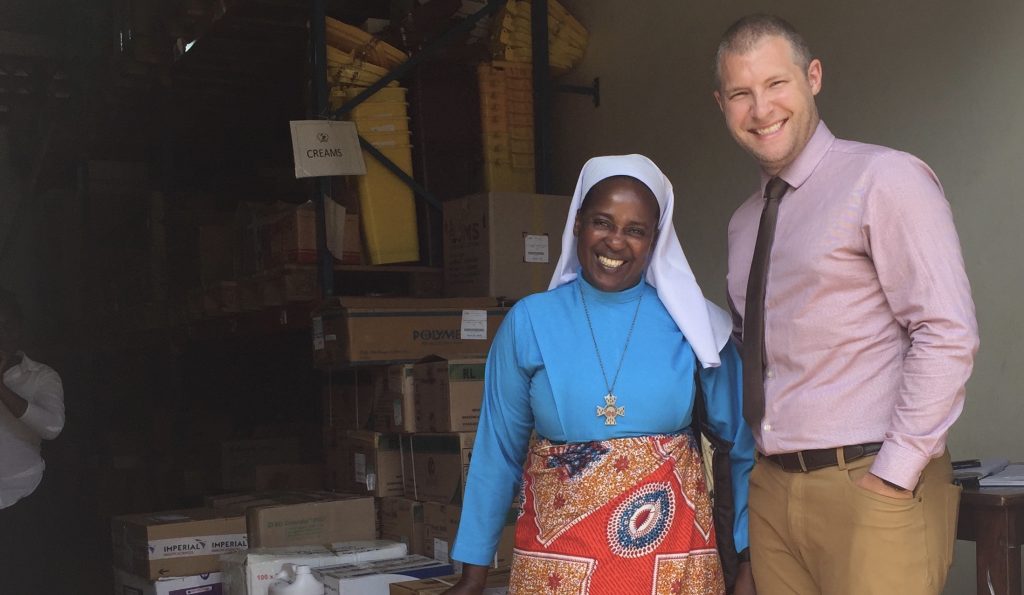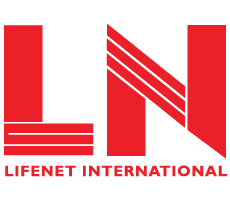14 Oct Voices from the Field: Josh Guenther Reflects on LifeNet’s 10-10-10 Vision

How I forgot everything I thought I knew, and learned to dream big.
Sometimes I wonder how I got here. Being a prairie boy from Western Canada, it’s a miracle that I’ve been living and working in East Africa for the past 7 years.
Growing up, I had security that few in this life can imagine. I never once went hungry, never worried about getting ill, never worried about school fees. I grew up in a culturally diverse setting that was normal and comfortable. As a teenager, I began to understand that I was afforded privileges that I never earned or deserved. It gave me a strong calling and clear sense of where I needed to direct my career; I wanted to work in healthcare. To me, it was the great equalizer. Without health, what resources do any of us truly have?
As a teenager, I began to understand that I was afforded privileges that I never earned or deserved.
The fastest way for me to do this was to become a nurse. I got my dream job; working in one of the busiest ERs in all of North America. 60% of the city’s homeless lived within a five block radius. It was chaos, and it was amazing. It was my first professional exposure to a workplace that continuously called for self-improvement, learning and reflection on your practice — all of it with a focus on improving patient outcomes.
It was my first step towards understanding marginalization and poverty. Nadine, my wife, who ran a nursing station for homeless men just a few blocks away, understood this as well. We both began to seek out opportunities overseas to volunteer and work with underserved populations in the developing world. Within a few years, we had been invited by a local NGO in Burundi to come and work in a rural health center located in Burundi’s central mountains. We found ourselves living on a hillside in the heart of the African continent.
The lessons came hard and fast. There was no health center, just an empty building. There was no money, just two Bazungu (white people) that supposedly could raise some. There were no plans, just a pile of paperwork written in languages we didn’t speak.
Within a year, we were operating one of the best health centers in the entire province. We had a team of 8 staff, we had managed a few successful grant applications, brought in a container of solar and medical equipment, had a fully stocked pharmacy and patients who would walk hours to come to our facility.
I had learned so much, but I still knew nothing. I remember the first time I encountered a development worker, and they off-handedly mentioned that payday was coming on Thursday.
My brain-to-mouth filter malfunctioned, and I shouted, “You get paid!?!?!?”
I had come to East Africa thinking that working in a health center was going to be the pinnacle achievement of my life. I was 26 years old. I had to forget everything I thought I knew.
When it became clear that we had worked ourselves out of our “jobs” at this rural clinic, it was time to look for what would come next. When I began looking for development work, it was demoralizing. Everything required a masters degree, which I did not have.
But as I sought out opportunities and began letting my network know I was job hunting, I had a conversation that would change everything. A friend told me of a new job opening — she was looking for someone to set up a new country program in Uganda for LifeNet International. She wanted me to apply.
LifeNet International began operations in Burundi in 2012, providing health systems training and capacity building with ten partner health centers. By 2014, its network had more than 50 health centers, all with access to LifeNet’s medical and management training programs. Designed to improve the quality of care through evidence-based practices and research, and improve the sustainability of this care through managerial and financial training, LifeNet was ready to expand to its next country program.
It was the job that my 17-year-old self had always wanted. I just never knew anything like it existed. I could not have dreamed of it on my own.
In 2015, we moved to Uganda, where I was the first employee of LifeNet’s program here. I was no longer an emergency room nurse, I was a country director. The first book I bought after starting my new job was literally “Reading Financial Reports – For Dummies.”
Working in development, especially in an organization like LifeNet, is a crash-course in self improvement and learning. Fortunately, I had a boss that was a big believer in building capacity and training. It was good to be a part of an organization that practiced what it preached. How could we advocate for learning and constant improvement without demonstrating it ourselves?
It’s 2019, and I run an office that has 36 employees. Our network in Uganda consists of 70+ health facilities that receive monthly training, supervision and mentorship visits from our teams of medical and management trainers. LifeNet as a whole operates 4 country programs, with 170+ partner facilities, all currently being led by employees that started somewhere in the organization and grew to their current capacity. This network represents the improved quality of care for more than 1.6M patient visits annually.
So here I am, a prairie boy from Alberta, learning how to dream big. How can I not, when I look back on what is achievable?
With our current leadership, we are being challenged to dream even bigger. LifeNet’s new 10-10-10 Vision has us expanding to improve the quality of care for 10,000,000 patient visits annually, across 10 country programs, funded by $10,000,000 in annual revenue. This is a vision that as a country director, I am actively contributing to. In Uganda we are dreaming of an expansion that takes us to 350+ health center partners across the entire nation.
Recently, LifeNet’s leadership team met and we marveled with one another as we heard the vision of each country program — everyone had something to contribute to our collective goal. It was amazing.
Seven years ago, my wife and I were running a single health center. It was our dream, and we could not imagine anything bigger. Life in the field has helped me to understand what dreaming big looks like.
I don’t think the learning journey stops here. I don’t think LifeNet’s story ends with 10-10-10, just like mine did not end with a single health center opening.
We still have so much to forget, and so much to learn.
I can’t wait.
Josh Guenther is LifeNet’s Uganda Country Director. You can keep us with Josh and his wife Nadine, who serves as a Medical & Training Consultant for LifeNet, on their personal blog here: Josh & Nadine in Africa.
